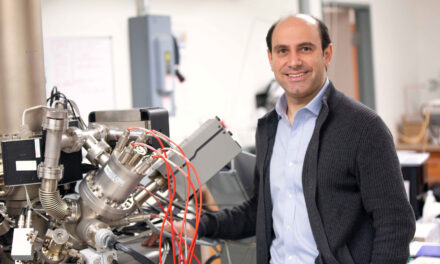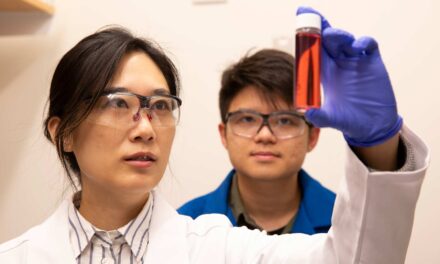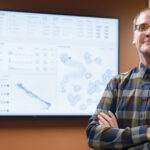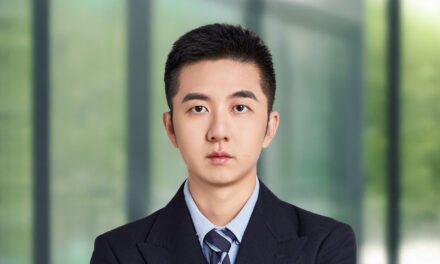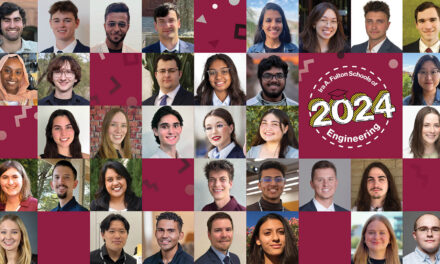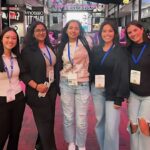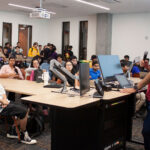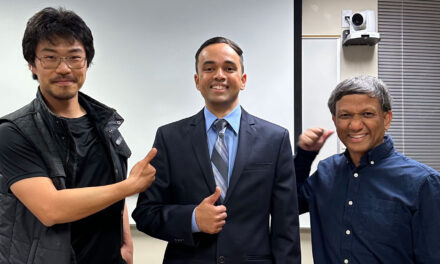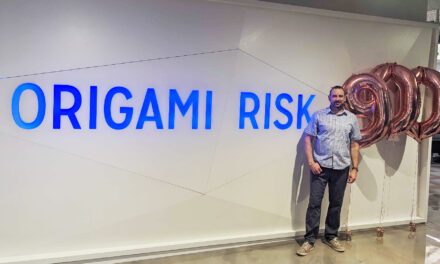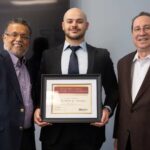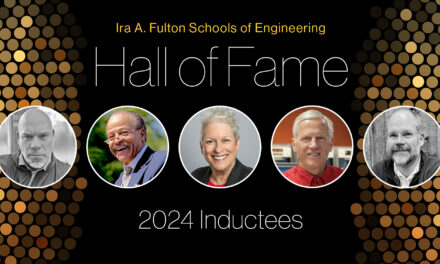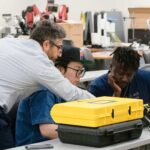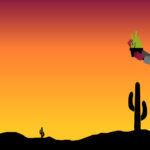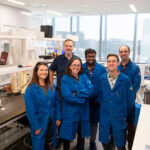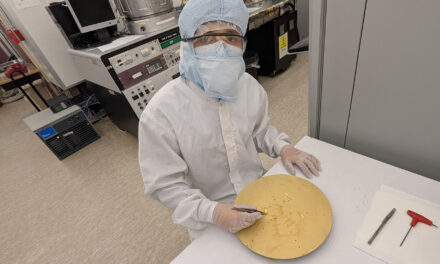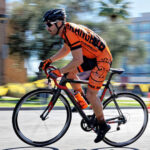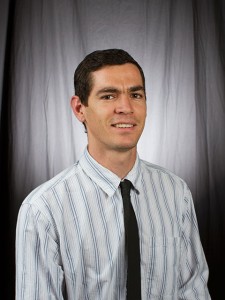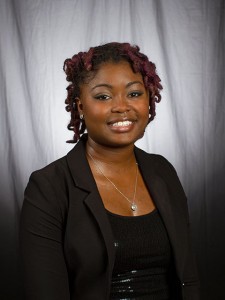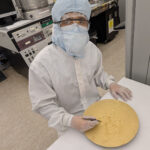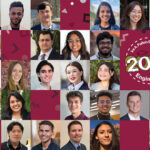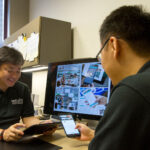
Honored graduates from the College of Technology and Innovation
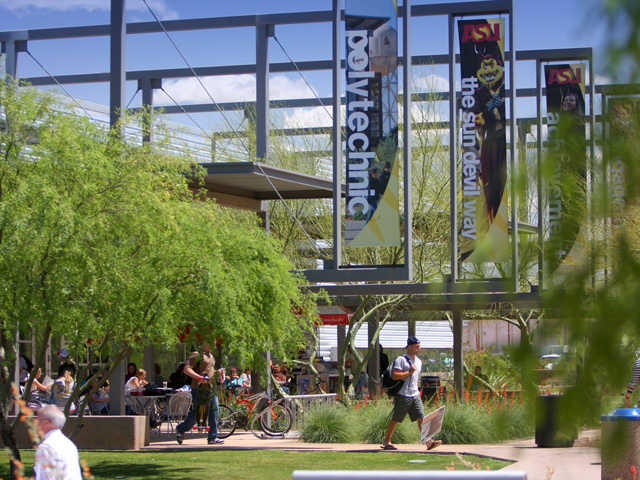
Each year, the faculty of Arizona State University’s College of Technology and Innovation recognizes students for academic excellence. The CTI Dean’s Award for Academic Excellence as well as the ASU Alumni Association Award are awarded to two eligible undergraduate students and one graduate student each spring semester. All students who complete and meet degree requirements are eligible for consideration. The college committee on academic standards reviews nominations and recommends nominees for final selection by the dean.
Those chosen for the 2014 spring semester awards are: Matthew Bodington, Dean’s Award for Academic Excellence – Undergraduate; Shakira McCall, Dean’s Award for Academic Excellence – Graduate; and Michael Margolies, ASU Alumni Association Outstanding Graduate Award (not pictured).
Matthew Bodington
Matthew Bodington, Dean’s Award for Academic Excellence – Undergraduate, wants to introduce clean and renewable technologies to developing countries, reducing the use of fossil fuels.
Matthew Bodington’s studies often were interrupted by giraffe or elephant roaming through the lion research camp where he lived, or by an excited call over the radio announcing something interesting happening with the lions.
Bodington was born in Durban, South Africa, and spent most of his childhood in eastern South Africa.
At 12, he and his brother moved to Maun, a remote town in central Botswana, to live with his father. He attended a school with 15 students, aged 12-17, with teachers who used the International General Certificate of Secondary Education (IGCSE) curriculum used in England.
“During final exams, we had to travel about 650 miles south to the capital city of Gaborone, the only place in the country certified to give the IGCSE exams,” Bodington said. After high school, he lived with friends on a lion research camp in the Moremi Game Reserve and studied for the SAT, planning to join his mother in Arizona and attend Arizona State University.
“I woke up early one morning to get coffee started in the mess tent,” Bodington said. “Upon stepping out of my tent, I startled a pack of wild dogs that had made a kill the night before and had spent the night under some trees nearby.
“Despite my inability to move, I reveled in the fact that I was witnessing something many people don’t, and even more so because the pack was slowly retreating into the bush and away from me.”
After coming to Arizona, Bodington attended Mesa Community College, and considered studying geology at the University of Arizona, then forestry at Northern Arizona University. He settled on ASU after deciding he wanted to pursue electrical engineering, particularly alternative energies.
“I have always been fascinated by feats of engineering and from a young age developed an interest in math and physics,” Bodington said. “Although my initial instincts were to pursue mechanical engineering, my love of the environment and concern over fossil fuel dependency and associated emissions drew me towards the alternative energy program.”
Bodington received federal Pell Grants and University grants to help with his undergraduate tuition. He has been on the Dean’s List for five of his eight semesters at ASU, and was given the Undergraduate Dean’s Award for Academic Excellence. His GPA is 3.9.
Bodington volunteered for a Global Resolve project to install off-grid solar modules on the Navajo Nation, and worked with Global Resolve during a course project to introduce solutions to irrigation issues in rural Nicaragua. In the fall, he will return to ASU to work on a master’s degree in solar energy engineering and commercialization, for which he is eligible for a Dean’s Fellowship.
He wants to introduce clean and renewable technologies to developing countries, reducing the use of fossil fuels.
“I have developed a particular interest in hydrogen generation using photovoltaic technology,” Bodington said. “Hydrogen offers a clean alternative to fossil fuels, and I would love to be involved in developing feasible and efficient methods of hydrogen production.”
He also loves to hike and is an amateur rock climber, which he plans to do with his fiancée.
Shakira McCall
Shakira McCall, Dean’s Award for Academic Excellence- Graduate, knew she was destined to be an engineer, and found her way to ASU through Google.
Shakira McCall, who is finishing her master’s of science in engineering, found her way to ASU through Google.
“I searched ‘alternative energy,’ and came across Dr. Bradley Rogers (an associate professor in engineering at the College of Technology and Innovation),” McCall said. “I came out to visit and to discus the program and how I might be a possible fit.
“After a two-hour long conversation, I knew this was the school for me, given that Dr. Rogers was willing to take time out of his busy schedule to meet with me and show that he was passionate about alternative energy and teaching.”
McCall was born in Baltimore, Md., and raised in Marietta, Ga.
In 2002, when she was 12, she was on a 4-by-800-meters relay team that won the Junior Olympics.
She graduated from Western High School in Baltimore, the oldest all-girls public high school in the country.
She said she always knew she was destined to be an engineer.
“I’ve always found math and science classes to more stimulating than English classes,” McCall said. “In primary and secondary school, it always seemed like the math and science classes went by so fast and the English and Social studies classes lasted forever.”
McCall is interested in sustainability, how people can live in harmony with the environment rather than using materials that have detrimental effects on the ecosystem.
She helped develop education programs for students here in Arizona and in Trinidad and Tobago showing how energy can be generated from cow manure. Working with the students was the most rewarding experience she has had at ASU, she said.
She has a 4.0 GPA, and has received the Graduate Dean’s Award for Academic Excellence, a University Grad Grant, and a JumpStart Research Grant from the Graduate and Professional Student Association. She was featured in the outstanding student graduate commencement. She was a residential community assistant, helped reactivate ASU’s student chapter of the National Society of Black Engineers and was given travel money from the College of Technology and Innovation to visit Trinidad and Tobago, as well as Indianapolis.
She will work on a doctorate in civil, environmental and sustainable engineering in the School of Sustainable Engineering and the Built Environment, and has been awarded the fellowship from the Integrative Graduate Education and Research Traineeship: Solar Utilization Network.
“My aspiration is to become a professor and build a research team to design sustainable schools in developing countries,” she said.


